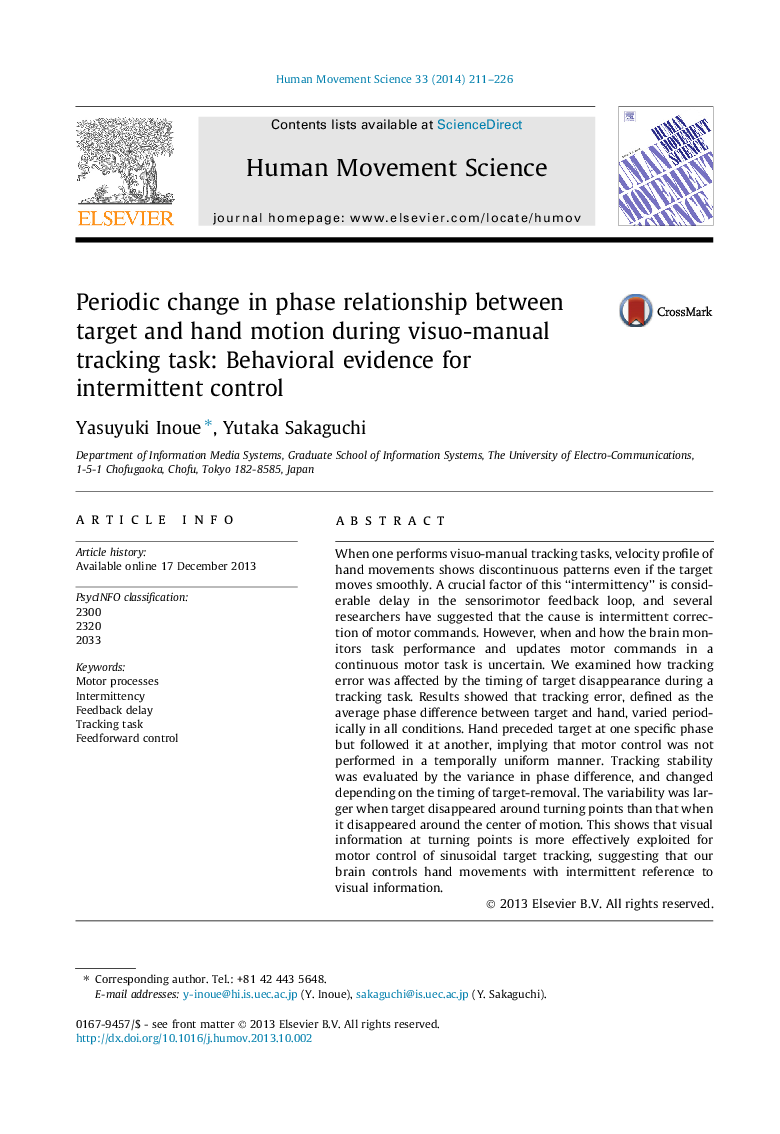| کد مقاله | کد نشریه | سال انتشار | مقاله انگلیسی | نسخه تمام متن |
|---|---|---|---|---|
| 7292551 | 1474232 | 2014 | 16 صفحه PDF | دانلود رایگان |
عنوان انگلیسی مقاله ISI
Periodic change in phase relationship between target and hand motion during visuo-manual tracking task: Behavioral evidence for intermittent control
ترجمه فارسی عنوان
تغییر دوره ای در رابطه فاز بین هدف و حرکت دست در طول انجام وظیفه ردیابی دستی: شواهد رفتاری برای کنترل متناوب
دانلود مقاله + سفارش ترجمه
دانلود مقاله ISI انگلیسی
رایگان برای ایرانیان
کلمات کلیدی
موضوعات مرتبط
علوم زیستی و بیوفناوری
علم عصب شناسی
علوم اعصاب شناختی
چکیده انگلیسی
When one performs visuo-manual tracking tasks, velocity profile of hand movements shows discontinuous patterns even if the target moves smoothly. A crucial factor of this “intermittency” is considerable delay in the sensorimotor feedback loop, and several researchers have suggested that the cause is intermittent correction of motor commands. However, when and how the brain monitors task performance and updates motor commands in a continuous motor task is uncertain. We examined how tracking error was affected by the timing of target disappearance during a tracking task. Results showed that tracking error, defined as the average phase difference between target and hand, varied periodically in all conditions. Hand preceded target at one specific phase but followed it at another, implying that motor control was not performed in a temporally uniform manner. Tracking stability was evaluated by the variance in phase difference, and changed depending on the timing of target-removal. The variability was larger when target disappeared around turning points than that when it disappeared around the center of motion. This shows that visual information at turning points is more effectively exploited for motor control of sinusoidal target tracking, suggesting that our brain controls hand movements with intermittent reference to visual information.
ناشر
Database: Elsevier - ScienceDirect (ساینس دایرکت)
Journal: Human Movement Science - Volume 33, February 2014, Pages 211-226
Journal: Human Movement Science - Volume 33, February 2014, Pages 211-226
نویسندگان
Yasuyuki Inoue, Yutaka Sakaguchi,
